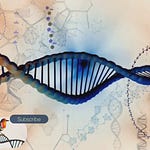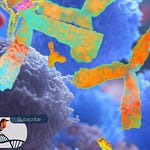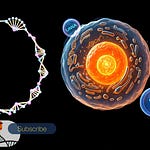Protein and antibody engineering involve the design and modification of proteins to enhance their functionality, stability, and therapeutic potential. Protein engineering utilizes rational design and directed evolution to optimize enzyme activity, stability, or binding affinity, enabling the development of more efficient biocatalysts and therapeutic proteins. Antibody engineering focuses on optimizing monoclonal antibodies, antibody fragments, and bispecific antibodies for targeted therapy, enhancing their specificity, affinity, and half-life.
Advanced techniques such as phage display, yeast display, and computational modeling allow for precise selection and optimization of antibody and protein variants. Site-directed mutagenesis and combinatorial libraries, including trinucleotide phosphoramidite-based codon libraries, enable the fine-tuning of amino acid sequences to maximize therapeutic efficacy. These approaches are crucial in developing next-generation biologics, immune-oncology therapies, and diagnostic tools.
Antibody engineering technologies such as humanization, affinity maturation, and Fc engineering improve the safety and effectiveness of therapeutic antibodies, reducing immunogenicity and enhancing immune system interactions. Single-domain antibodies (nanobodies) and engineered antibody fragments provide alternative formats with enhanced tissue penetration and stability, expanding their use in cell therapy, imaging, and targeted drug delivery.
In protein engineering, computational protein design and AI-driven modeling accelerate the discovery of novel proteins with improved properties. Fusion proteins, synthetic peptides, and chimeric antigen receptors (CARs) are engineered to enhance immune responses and enable precision medicine applications. These innovations drive advancements in enzyme replacement therapies, synthetic biology, and molecular diagnostics.
By leveraging the latest advancements in directed evolution, structural biology, and molecular engineering, protein and antibody therapeutics continue to transform medicine. These highly specific and customizable biomolecules offer targeted treatments for cancer, autoimmune diseases, infectious diseases, and rare genetic disorders, paving the way for the next generation of biologic therapies.
Check out our comprehensive articles all about Protein & Antibody Engineering.
Key Functions of Antibodies and Nanobodies
Engineering Antibody Discovery
Cloning and Expression Vectors
Designing Protein and Antibody Libraries
TRIM Technology and Protein Diversity
If you like our work, please consider subscribing or supporting our efforts with a pledge.













Share this post